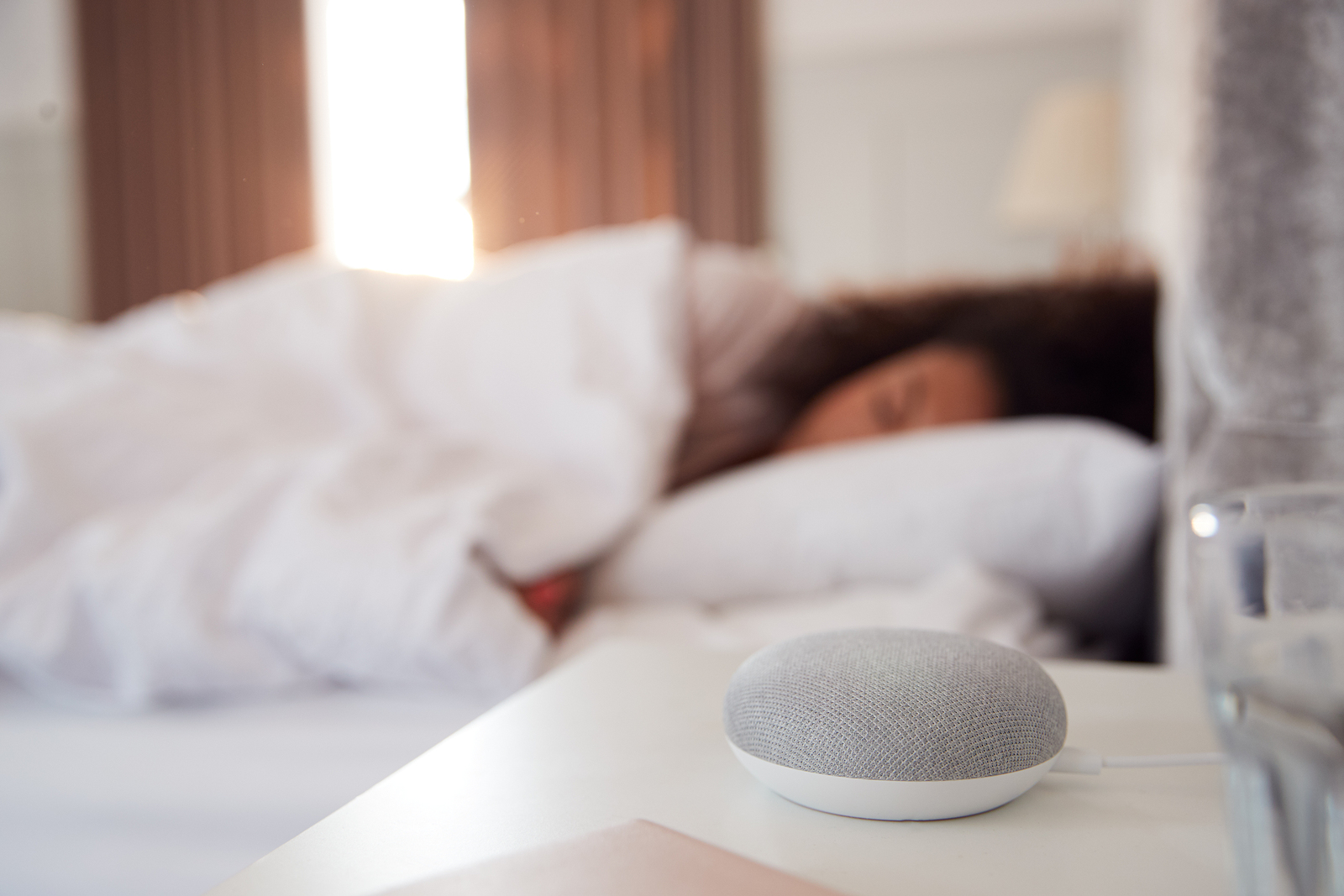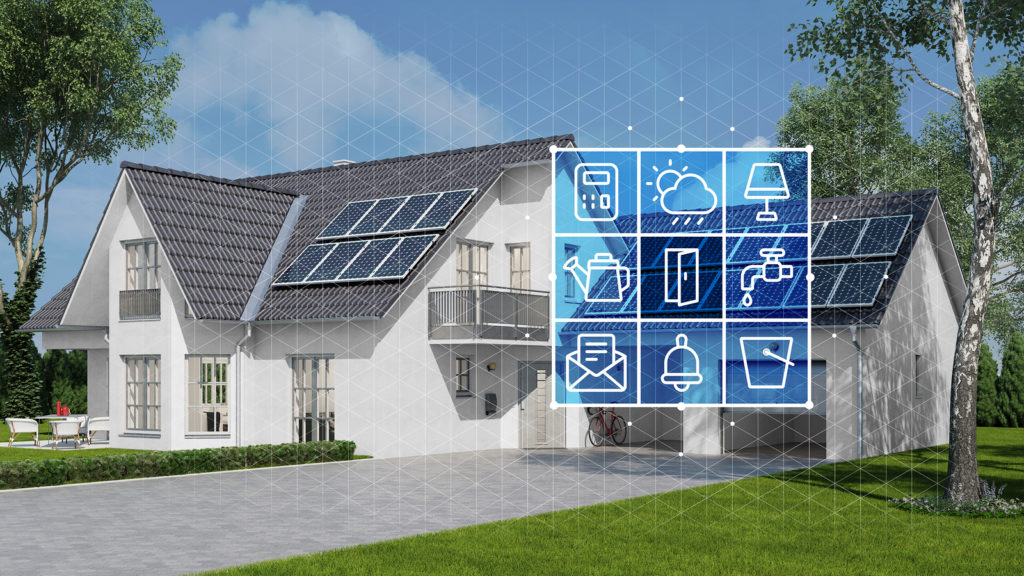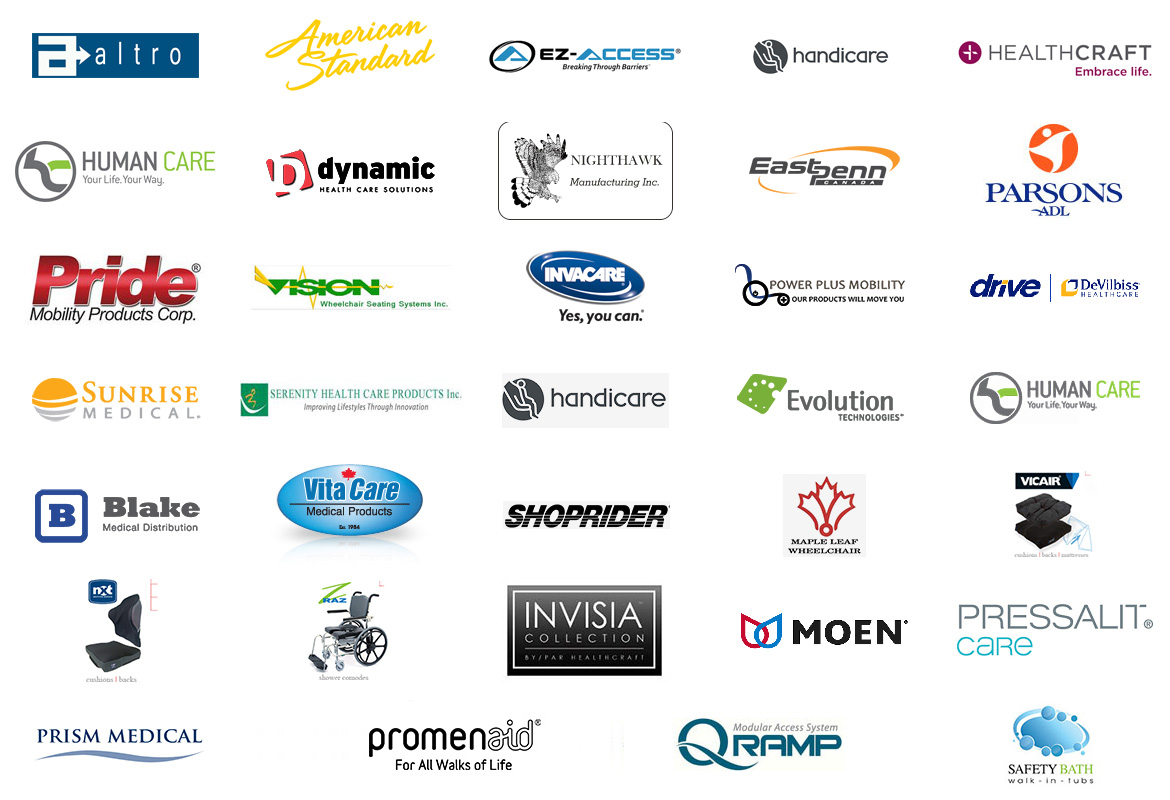The Future of Smart Home Assistants & Home Health Care Products Looks Bright
Tuesday, December 17th, 2019, 5:31 pm , Posted by MED +
Smart home technology has become commonplace in many homes. It is used to help with many different types of daily tasks. For people with medical issues or those simply needing a helping hand at home, smart home assistants and other technology can vastly improve your quality of life. It can also make it easier for caregivers and medical professionals to provide care.
Technology and health care go hand in hand. As technology evolves so do innovations in the health care industry. We’ve seen things evolve over time. Just look at the innovations that have been made in terms of home health care products. Stair lifts, home hospital beds, wheel chairs and many other devices have been widely adopted in the home. All of these have made it much easier for seniors and those with health issues to live comfortably at home. Technology innovations of tomorrow will continue to have a positive impact on health care in the future.
But, what about other widely used technology such as Smart Home Assistants? Seniors are increasingly open to using more advance technology to help manage their health. Modern technology we take for granted can change a person’s lifestyle for the better.
Imagine a senior asking a Google device to “okay Google, get my stair lift ready” or a person asking Alexa, “Alexia, what time do I need to take my medication?” Or, imagine using the smart assistant to even adjust your bed lock your doors or shut off the lights without having to move. The ideas are limitless.
In this blog, we take a look at how seniors are more open to new tech based health care solutions and the future of smart home assistants and home health care products.
Seniors Are More Willing To Use Technology To Help Manage Their Health
There is an assumption that seniors and technology do not mix. However, this is changing. According to a survey by the Consumer Technology Association (CTA) 54% of seniors are open to using technology to manage their health, remote monitoring in particular. The survey also found:
- 49% of seniors are interested in using it to manage their health.
- 32% of seniors are very familiar with emergency response solutions.
- 40% of consumers are aware of remote monitoring. But, 43% are concerned about data privacy.
- 75% of seniors said they would need assistance adopting technology based health care solutions.
- Most seniors are concerned about the cost of health solutions using technology.
Healthcare professionals also see the benefit of these solutions:
- 68% of health professionals want to use technology to manage patient’s health.
- 49% believe the technology has made health more accessible for patients, but they do have concerned about how patient data is handled.
This data suggests that the growth and adoption of technology based healthcare solutions will continue to grow in the next decade and beyond.

How Can Smart Home Assistants Help Home Health Care
It’s hard not to think about the futuristic harmony and potential of smart home products such as Google Home, and Alexa, and home health care products working together to make the living even more accessible for all. The harmony of both home assistant and home health care solutions working together can enhance your health care experience at home, assist care facilities, hospitals, medical buildings and anywhere else. What areas can they help with?
- Safety: Safety is a huge concern at home. Falling incidents, forgetting to lock the door and many other safety issues can be addressed through technology. Simple reminders, the ability for seniors to lock their dock remotely, and many other solutions could be used using voice commands.
- Monitoring: Remote monitoring has a lot of potential. For many seniors and people with health considerations, making a simple trip to the doctor is a significant endeavor. Remote monitoring makes it possible for health care professionals to assist patients remotely. This gives patients better and easier access to care when they need it, and without as much effort.
- Emergency response: This is one of the most important topics for seniors and those with medical issues are emergency response. Smart home technology makes it easy for seniors to call for help if they fall. Sensors can be used to alert caregivers if unusual movement patterns are detected.
- Communication: Communication is very important. Smart home technology can make is much easier for seniors to speak with health care providers, friends, family, and others. Video conferences can be used for check-ins, you can use Google Assistant and Alexa to make calls and even get answers to questions.
- Home control and automation: Technology can help automate simple tasks around the home that can be challenging for those with mobility issues. Things like turning off the lights or television, closing the blinds, adjusting the thermostat, locking the door, checking the security camera, and getting notifications are all possible.
- Reminders: Set up reminders to complete tasks around the house. One of the biggest concerns for caregivers is patents remembering to take their medication as prescribed. New technology can provide them with reminders of when and what type of medication to take. Reminders can also be used to help seniors remember to charge their wheel chair, follow up with doctors, and much more.
- Support for current health care products: Technology is already very much a part of health care products. But, just think of how far home monitoring and new technology innovation cans enhance current products. Beds, stair lifts, patient lifts, scooters, wheelchair lifts, power wheelchairs and other devices can all be improved. New features and uses can be introduced in the future.

Pilot Project Underway Using Smart Homes To Help Ontarians With Mental Illness
A pilot project in London, Ontario is showing how much of an impact smart home technology can help health care. The idea behind the project is to a use connected technology to allow medical professionals to monitor mental health patients remotely. This gives patients the ability to life on their own or with family.
Mary Baxter on TVO.org explains how the project works:
“Participants will have access to a medication dispenser that administers doses at prescribed times. They will also be able to use their tablet, smartphone, or computer monitor to fill out mood questionnaires, video conference with doctors and nurses, and organize day-to-day activities.”
“Devices will use cloud-computing software to relay heart-rate, sleep, and physical-activity information to a database housed on hospital servers. Both the participants and the care providers will have access to results, and the system will alert clinicians to any irregularities.”
“The plan is to engage participants living on their own, in supportive housing, or with family or roommates.”
The results and potential benefits from this pilot project can be easily applied to seniors and individuals with many other types of health conditions. Applying these types of solutions can help improve quality of life and allow people to stay in their home longer.
Read More From Our Blog
The History of the Hospital Beds and Their Development





